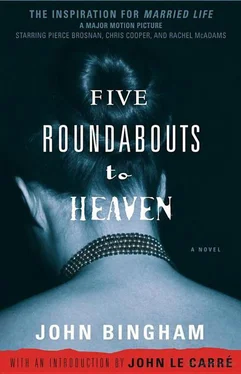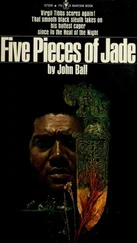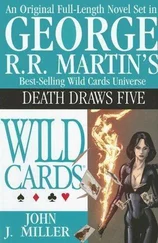John Bingham - Five Roundabouts to Heaven
Здесь есть возможность читать онлайн «John Bingham - Five Roundabouts to Heaven» весь текст электронной книги совершенно бесплатно (целиком полную версию без сокращений). В некоторых случаях можно слушать аудио, скачать через торрент в формате fb2 и присутствует краткое содержание. Жанр: Криминальный детектив, на английском языке. Описание произведения, (предисловие) а так же отзывы посетителей доступны на портале библиотеки ЛибКат.
- Название:Five Roundabouts to Heaven
- Автор:
- Жанр:
- Год:неизвестен
- ISBN:нет данных
- Рейтинг книги:4 / 5. Голосов: 1
-
Избранное:Добавить в избранное
- Отзывы:
-
Ваша оценка:
- 80
- 1
- 2
- 3
- 4
- 5
Five Roundabouts to Heaven: краткое содержание, описание и аннотация
Предлагаем к чтению аннотацию, описание, краткое содержание или предисловие (зависит от того, что написал сам автор книги «Five Roundabouts to Heaven»). Если вы не нашли необходимую информацию о книге — напишите в комментариях, мы постараемся отыскать её.
Five Roundabouts to Heaven — читать онлайн бесплатно полную книгу (весь текст) целиком
Ниже представлен текст книги, разбитый по страницам. Система сохранения места последней прочитанной страницы, позволяет с удобством читать онлайн бесплатно книгу «Five Roundabouts to Heaven», без необходимости каждый раз заново искать на чём Вы остановились. Поставьте закладку, и сможете в любой момент перейти на страницу, на которой закончили чтение.
Интервал:
Закладка:
“You’re a sentimentalist and a romantic, and I’m not. You should have married somebody else. I know you don’t love me anymore. You’re terribly fond of me, you need me, you can’t do without me, but you don’t love me. Not anymore.”
Now was the moment.
But he couldn’t do it. He couldn’t say the words because, with a sinking heart, he saw that she was crying; sitting bolt upright on the settee in front of the fire, holding her handkerchief to her nose, her face puckered up like a child’s, mouth quivering to restrain her weeping.
“I’m too strong a character to suit you,” whispered Beatrice. “I know I’m crying now, but I’m too strong a character. You should have married somebody weaker. You are the type which loves a helpless sort of woman. It’s true, darling.”
Bartels thought: You can’t tell with people, you just can’t tell. She thinks she’s strong, but at heart she’s a child, wanting to be loved, and wanting to have somebody to love. Maybe everybody has three character-skins. The first skin is the one they try to present to the world, the deceptive skin; then comes the second skin, the concealed selfishness, the cynicism, the callousness, covetousness, and greed; but then, if you dig deep enough, right down below it all, you find the third skin, that of the essential, basic child, insecure, needing to be loved and to love.
You can’t tell with people, you can’t tell, he thought miserably.
“It’s true, darling,” said Beatrice again, in a choked voice, “you don’t love me. You’re terribly fond of me, I know. And I know you need me,” she said again. “I know you can’t do without me.”
A little wave of pity approached the barriers Bartels had erected around his heart. He saw it coming, and watched its approach with agitation, and raised the barriers higher against it.
She should never have married him, if she didn’t love him. It was not fair. Or if she married him, she should have been prepared to give and give. He would leave her. He had to leave her, because Lorna was lonely, and needed him, and he needed Lorna. Fundamentally, it would serve Beatrice right.
She shouldn’t have married me, he repeated to himself. She shouldn’t have done it.
Beatrice suddenly buried her face in her hands. Her shoulders shook because she was weeping properly now. But there was little sound except for the periodic sharp intake of her breath.
She’s fighting against it, thought Bartels irrelevantly, trying not to make too much of a scene. That’s partly because she is English and partly because of her school training. It sticks, as Mr Chips said about Latin, some of it sticks. Blood and training. Some of it sticks; not all, but some.
The wave was lapping round the barriers now, eating at the foundations, lapping and receding, and coming back with renewed vigour. He only had to get up from his chair and take two steps, and sit beside her and take her in his arms, and tell her she was wrong, and she would believe him because she wanted to. It would all stop.
Beatrice said in a muffled voice: “I only try to do my best, darling. It’s not easy.”
Pity, pity, pity.
The fly in the wine glass, the daddy-long-legs at the window, the butterfly in the fire. With dread and a feeling of foreboding Bartels saw the wave top the barrier and surge down upon him, and for a few seconds struggled against it with a hopeless ferocity. Then the waters were around him and over him, and he knew that he had lost. He rose from his chair and went over to the settee. He moved slowly and heavily.
I think that as he put his arms around her and told her that she was wrong, and that he did love her, there was already stirring within his mind, very faintly, and in an undefined form, the feeling that he might have to kill her.
It was the next day, 14 February, that, in accordance with his fortnightly habit, Bartels called upon his aunt Emily. Aunt Rose, pugnacious to the last, had died some years before, and uncle James, lost and at sea without that dominating character, had been buried beside her scarcely a year later.
But Cook was still in service, and greeted him in her usual sour manner, and told him that aunt Emily was at a seance but would be back in half an hour or so. He was hardly inside the door before he noticed a curious aromatic smell, half sweet, half acrid.
“What’s that smell?” he asked.
“You may well ask,” replied Cook ominously; she was a fat, pale woman, with dark hairs on her upper lip and a slight but disconcerting cast in one eye. She disappeared into the kitchen without further words.
She had been with Bartels’ aunt for twenty-seven years, and there appeared no reason to believe that she would ever leave until his aunt died. There was a general understanding that his aunt would leave her what she called “a little something” in her will. Bartels remembered how sometimes, in the gentle, arch way his aunt Emily had of speaking, she would say in Cook’s presence, while he was still a boy:
“There! What a lovely cake old Cookie has made for you to take back to school! What should we do without her? Never mind, Cookie knows she will not be forgotten when I pass over!”
She would glance at Cook, and give one of her coy little laughs, as if to indicate that she and Cook had a little secret which they shared between them. Possibly Cook saw visions of inheriting large sums of money, and retiring to live in modest comfort. Perhaps she thought she might even get the house. If she did, she was a stupid woman.
It was not that his aunt was mean, or even ungrateful for services rendered. It was simply that she had an entirely erroneous idea of the current value of money; when it came to tips, she continued to think in terms of Victorian days. Quite often she would describe the details of some journey she had made; how she had caught this or that train; how she had arrived at Paddington and commissioned a porter to carry her bag for her; how they had found a taxi.
“So I gave the porter tuppence for himself,” she would say in passing, and no doubt she thought she had remunerated him very handsomely indeed.
Bartels went into the drawing room and glanced at the evening paper for a while, and smoked a cigarette. There was nothing in the paper of particular interest. He tossed it aside and glanced round the room; then got to his feet and strolled over to the glass-fronted bookcase in which aunt Emily still kept the books of her late husband.
Bartels had only the dimmest recollections of his uncle Robert. He recalled a sombrely dressed figure who came and went with a mysterious black bag, who sometimes, when Bartels was a very small child, had come and gazed at him and made him put his tongue out, or had placed a glass thing in his mouth-“a cigarette,” uncle Robert had called it, with a wink at his mother.
Then the years passed and he never came again, and Bartels learnt that the physician had been unable to cure himself.
The bottom two shelves were filled with a collection of novels ranging from bestsellers of pre-1914 vintage to Edgar Wallace and P. G. Wodehouse. The other two shelves held a number of fat medical works of reference, one or two volumes on the history of medicine, and a French and a German dictionary.
Sandwiched between the dictionaries was a red book called Forensic Medicine and Toxicology.
Bartels opened the bookcase and took it out.
The mentality of the poisoner was one which Bartels had never been able to fathom. He and I had frequently argued about capital punishment. Bartels was against it, except in very rare cases, declaring that in most cases the victim of a murder crime did not know that he was about to die, whereas capital punishment involved an almost sadistically long period of waiting and of fear.
Читать дальшеИнтервал:
Закладка:
Похожие книги на «Five Roundabouts to Heaven»
Представляем Вашему вниманию похожие книги на «Five Roundabouts to Heaven» списком для выбора. Мы отобрали схожую по названию и смыслу литературу в надежде предоставить читателям больше вариантов отыскать новые, интересные, ещё непрочитанные произведения.
Обсуждение, отзывы о книге «Five Roundabouts to Heaven» и просто собственные мнения читателей. Оставьте ваши комментарии, напишите, что Вы думаете о произведении, его смысле или главных героях. Укажите что конкретно понравилось, а что нет, и почему Вы так считаете.












